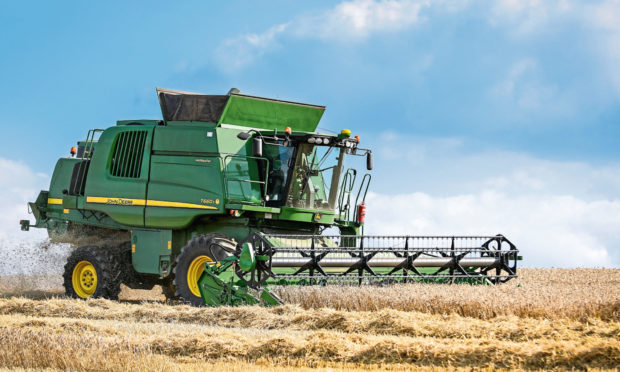Looking back, it is hard to believe that in January the biggest crisis facing the UK was Brexit.
For three years it dominated our lives like no other issue.
Then from nowhere along came Covid-19 which, in the space of four months, has killed nearly 400,000 people worldwide and is causing huge economic damage to every nation.
The impact of Covid-19 puts Brexit into context; it is important to the future of our country but leaving the EU is not the disaster some claim.
Since April, negotiations on a new trade deal between the UK and the EU have taken place by video link.
The end of this month is crunch time as both sides have to agree whether a deal is possible by January 2021, or if more time is needed.
Right now the talks are deadlocked.
UK negotiator David Frost has called for the EU to be more flexible so a deal can be secured.
EU negotiator Michel Barnier has called for an extension to the 12-month transition period, which Boris Johnson has flatly rejected.
One of the major blocks to a deal is the EU’s insistence that the UK must play by the same EU environmental and labour rules in return for access to their markets.
The UK flatly rejects that idea, pointing out the UK would be forever bound to rules made by the EU and over which we would have no say.
David Frost points out that the EU has more than 50 trade agreements – the most recent one being Canada – and none of them force their trade partners to follow EU rules.
For UK farmers this is a crucial question. Why would the industry wish to be permanently tied to EU environmental rules which, in my experience, completely ignore science and leave EU farm producers at a competitive disadvantage?
Many key tools have been lost to EU farmers, but not because of science-based decisions.
Due to EU pesticide regulations farmers have lost many chemicals not because they are dangerous, but because the licensing costs are so prohibitive.
The European Food Standards Agency has ruled glyphosate to be completely safe yet there is a real prospect the product could be banned in 2022 as the approval process has been hijacked by politics.
New plant-breeding techniques hold out the prospect of breeding plants that could lead to reduced pesticide use and greater carbon efficiency, yet they are caught up in the same costly politicised bureaucratic approval process for GMs – resulting in the technique being effectively banned due to the £150 million cost of approving a new trait.
Under the EU’s flagship Green Deal, it is planning to go further down that road. New legislation will cut pesticides by 50%, fertilisers by 20%, antibiotics by 50% and increase organic production to 25% of total EU production by 2030.
EU farm unions warn these targets, which appear to be plucked out of thin air, will load huge extra costs on to their businesses and destroy their livelihoods.
I backed remaining in the EU but I accept we are leaving.
For UK farming, I believe leaving provides a huge opportunity to design smart, science-based environmental rules that work for our industry.
Leaving still saddled with EU rules would be a disaster.
- George Lyon is a former MEP. He is a senior consultant for Hume Brophy and sits on the board of levy body AHDB.
